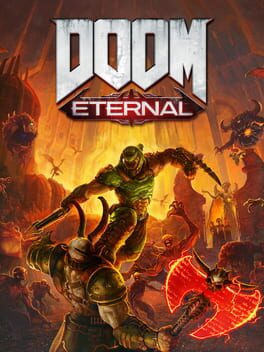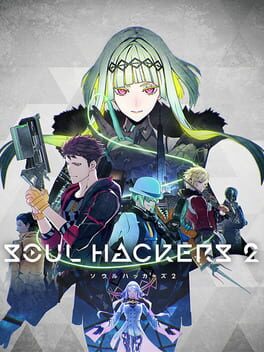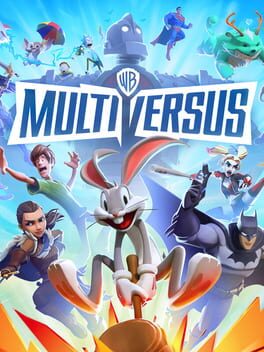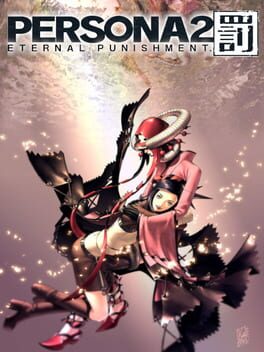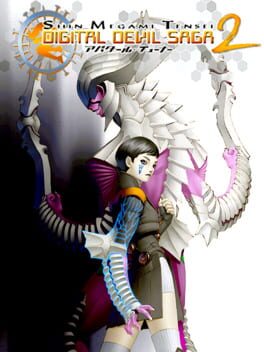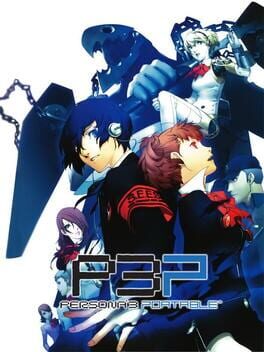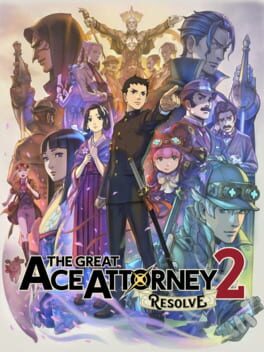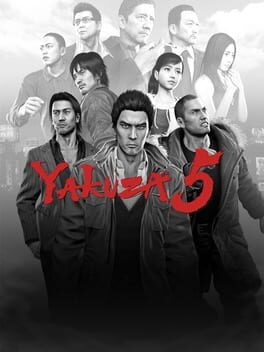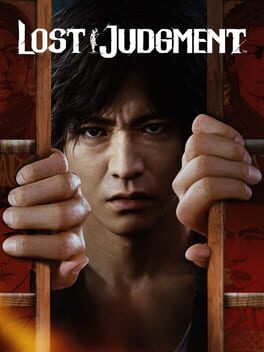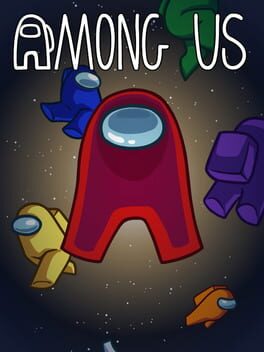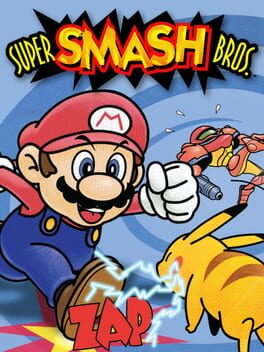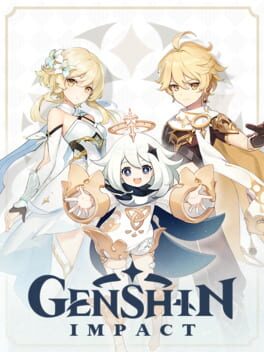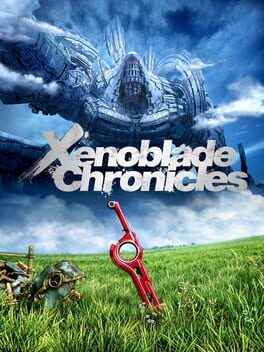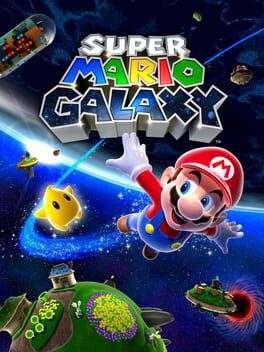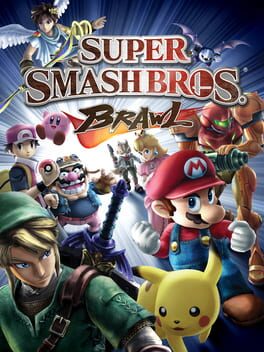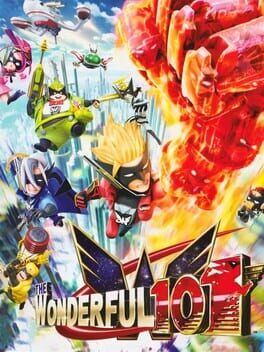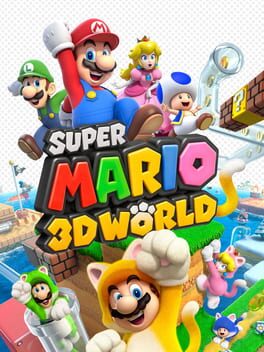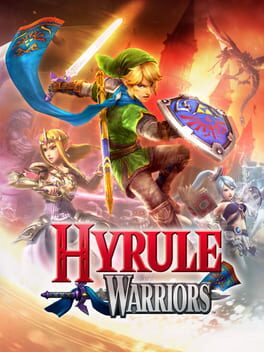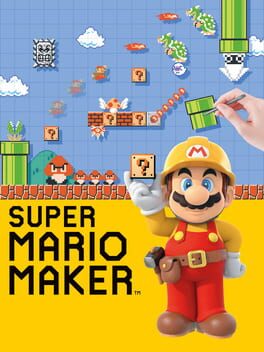SupremeJoe
60 reviews liked by SupremeJoe
Persona 5 Royal
2019
Doom Eternal
2020
Persona 5 Royal
2019
Really comfy and very personal-feeling read. Love the way that it captures and displays Alyssa's emotions through it's descriptive text. I feel like there are people who will resonate with this on a much more personal level than I could, but I connected with it quite a bit. It almost feels wrong for me to really give it a rating, and I mean that in the best possible way.
Sonic Frontiers
2022
Sonic Frontiers
2022
Soul Hackers 2
2022
Despite missing from its title, Soul Hackers 2 is a solid addition to the Devil Summoner series. A series not known for pushing the boundaries of the gameplay or storytelling within Megami Tensei, but rather for holding a unique sense of style and charm that you’d be hard pressed to find replicated within another entry in this wide franchise. As with its predecessor, you can expect an aesthetic akin to cyberpunk anime to ooze through every aspect of the game, but this time through the lens of the current year as opposed to the 1990s. The game makes the most of its apparent low budget through its vibrant and striking art direction, accentuating the many enjoyable character stories held within the game’s world. But as much as I’d love to sit and gush about the concept of a MegaTen subseries entry that comes from neither Mainline or Persona releasing in 2022, this experimental title still comes with a couple major issues.
Much like its predecessor, Soul Hackers 2 has a very basic combat system; retaining the baseline weakness/resistances aspect, but not adding much more in terms of core mechanics. But unlike its predecessor, Soul Hackers 2 doesn’t have the leeway of building upon and perfecting the simple row system of Classic Mainline. The new Sabbath mechanic can’t help but feel like a more dumbed down take on the other weakness exploit systems with how little it adds in terms of the tactical decision making process. Essentially, every time a party member hits an enemy’s weakness, the party begins to build a stack. At the end of the turn, Ringo deals AoE damage to every enemy, with the strength of the attack dependent on the number of stacks. Party members can gain personal skills to increase the number of stacks added per specific weakness exploit, but it comes with the downside of feeling as if party members are being funneled into specific builds. It’s unfortunately a pretty large drawback for a game with otherwise very strong and flexible character customization, as the sheer usefulness of the increased damage dealt with a high stack count is hard to ignore.
Physical skills aren’t as useful when it comes to dealing damage, as without a skill unlocked in the endgame, critical hits don’t count towards a stack for whatever reason. And they still use MP instead of HP, AKA the worst change ever made in the history of MegaTen. But I do love how they’re more utility based as a way to balance them out. They often come with secondary effects, such as single target debuffs, ailments, or some other quirky that keeps them valuable in spite of their rare use in contributing to Sabbaths.
Hama and Mudo skills have been wiped from the game completely. Kind of a shame, since I think SMTV perfected them by greatly restricting their ability to blindside the player. But in their place, Ailment inflicting skills have now taken on a similar role. They now deal damage on top of having a chance of inflicting an ailment. I’m fine with the change as I think it finally gives good incentive for the player to actually utilize them now. And there’s enough counterplay to keep enemies who use them from feeling too obnoxious, like armor that negates their passive effects.
Buffs and debuffs go back to being universally partywide instead of single target. But instead of being stackable, they keep the three turn limit first implemented in Persona. They also got a bit more creative in terms of upgrades. In the later half of the game, you gain access to skills that can buff/debuff two different stats at a time. And to keep those from quickly becoming irrelevant, Debilitate has been downgraded to being single target. All things considered, this game creates my favorite buff system in all of MegaTen. Each change makes sure they’re not too over centralized (especially since physical skills with debuff side effects exist), but still retain their incredible utility from the very start of the game.
I feel where this game shines the most in gameplay is in its boss battles because bosses can finally strategize again! Battles with Devil Summoners force you to overcome some sort of gimmick with their demon party, as their synergy can typically leave you with very little opportunities to attack. They’re also where my favorite addition to combat comes the most into play: Ringo’s Commander Skills. They allow Ringo to perform an action without consuming a turn, which aids the party with some sort of extra effect or action. All of them are useful and can completely change the way you approach an encounter, but the most integral one, in my opinion, is the ability to swap out any party member’s demon. If you ever wondered what Modern Persona would play like if the Wildcard wasn’t restricted to just the protagonist, this is the game. With this, bosses can become fun juggling matches where you’re constantly swapping out party members’ demons for the sake of reducing damage taken through resistances or optimizing damage dealt through skillset changes. They also encourage you not to only focus on building one strong demon for a respective party member, but to have an entire repertoire of demons that can be used at any time.
The most recurring complaint this game receives is its dungeon design and yeah, the shit is BLAND. I’m a psychopath who’s played Persona 3 like five times in a year and I’ve generally played MegaTen games with WAY worse dungeon design, so I got through it just fine. But if you’re normal and actually like your brain to be stimulated, dungeons will be rough. Aside from the couple basic puzzles sprinkled throughout in the second half, you’ll typically be roaming around empty hallways for 30 minutes to an hour until you get to the boss. This kind of design would lend well to the old 2D dungeon crawler gameplay of Classic Mainline and other such entries, but really have no place in a game with 3D traversal.
A prevalent focus in Devil Summoner games is their emphasis on demon personalities within gameplay and their connection to the Protagonist. Instead of implementing a friendship system, Soul Hackers 2 highlights this with benefits for maxing out a demon’s skillset and, more importantly, Demon Recon. At the start of each dungeon, Ringo will send out demons to scout the area. While exploring, you can interact with them, to which they’ll provide a different benefit indicated by an icon. It’s a fine system. Even though it tries, I don’t think it does much to make your demons feel like natural extensions of your party. But their dialogue can be fun and seeing them call Ringo nicknames like Rin-Rin is cute. My only big issue with the system is that dungeons can be far too reliant on it. Oftentimes the solution to a “””puzzle””” amounts to simply talking to one of your demons to collect an item necessary for progression. I’ve seen other people complain about how sidequest items and demon recruitment are tied to this system and I don’t get it personally. I never had to spend more than a couple minutes running in circles looking for what I needed, as playing the game naturally will most likely net whatever’s necessary.Also prefer this way of collecting demons, as Demon Negotiation is a dated system rendered mostly redundant by fusion in almost every game and serves no further purpose than an annoying RNG based way to gather fodder
The story is nice. It’s missing the batshit insanity that’s become a staple of Devil Summoner narratives and definitely does tend to play things safe. But its more down to earth focus on its cast is refreshing, especially since they’re not the most conventional group. The strength of the cast lies in their small talk. These guys are capable of striking up conversation over anything, whether it be after learning a new personal skill, completing some random side quest, finding a miscellaneous item in a dungeon, or eating a new dish. You’ll be constantly learning new things about not only them, but the dystopia they live in and the people they’ve connected with, all through an endless amount of fun banter. What makes it especially fun is Ringo herself. She’s an amazing protagonist that breaks new ground for MegaTen. Not only in the fact that she can speak, but her bright personality is able to bring the best out of each party member. She contrasts very well with their underlying melancholy and the occasional unrest within the group. I often found myself being disappointed by the fact that I had to choose from one of her usual three dialogue choices because I wanted to hear them all. I love when MegaTen effectively uses silent protagonists to enhance a game’s narrative and theming and whatnot, but I definitely think this game proved the franchise could stand to use more speaking protagonists like Ringo.
The game doesn’t tread many themes foreign to Megami Tensei. Government corruption, the strength of human connection, cultivating hope through despair, etc; you’ve likely seen it all already, if not in MegaTen then in some other JRPG. Not unsurprising, seeing as the original Soul Hackers was similar in this regard (granted, it was a story that took itself considerably less seriously). But I do find the way the game explores the importance of a second chance to be a great extension of the original’s messages and its motif regarding regret. It’s a good way to tie the games together thematically, considering there’s not much direct relation in general beyond that.
Soul Hackers 2 leaves me with caution filled hope. Hope that this game is a sign that Atlus is willing to adopt the sense of inspiration and experimentation that defined their days in the 2000s. It’s the era that birthed some of their most influential titles, like P3 and Nocturne, alongside beloved fan favorites, like DDS and Raidou. Each subseries acts as a reminder to me that Megami Tensei is FAR too broad of a franchise to be restricted to just Persona and the occasional Mainline entry and I would genuinely love to see more titles like Soul Hackers 2, just with a bit more polish. I just gotta hope this game’s inevitable mediocre sales don’t deter them from broadening their horizons indefinitely.
(this whole ass paragraph was just a slightly more composed way of me asking where the FUCK is the next Raidou Kuzunoha game, you FRAUDULENT company)
Much like its predecessor, Soul Hackers 2 has a very basic combat system; retaining the baseline weakness/resistances aspect, but not adding much more in terms of core mechanics. But unlike its predecessor, Soul Hackers 2 doesn’t have the leeway of building upon and perfecting the simple row system of Classic Mainline. The new Sabbath mechanic can’t help but feel like a more dumbed down take on the other weakness exploit systems with how little it adds in terms of the tactical decision making process. Essentially, every time a party member hits an enemy’s weakness, the party begins to build a stack. At the end of the turn, Ringo deals AoE damage to every enemy, with the strength of the attack dependent on the number of stacks. Party members can gain personal skills to increase the number of stacks added per specific weakness exploit, but it comes with the downside of feeling as if party members are being funneled into specific builds. It’s unfortunately a pretty large drawback for a game with otherwise very strong and flexible character customization, as the sheer usefulness of the increased damage dealt with a high stack count is hard to ignore.
Physical skills aren’t as useful when it comes to dealing damage, as without a skill unlocked in the endgame, critical hits don’t count towards a stack for whatever reason. And they still use MP instead of HP, AKA the worst change ever made in the history of MegaTen. But I do love how they’re more utility based as a way to balance them out. They often come with secondary effects, such as single target debuffs, ailments, or some other quirky that keeps them valuable in spite of their rare use in contributing to Sabbaths.
Hama and Mudo skills have been wiped from the game completely. Kind of a shame, since I think SMTV perfected them by greatly restricting their ability to blindside the player. But in their place, Ailment inflicting skills have now taken on a similar role. They now deal damage on top of having a chance of inflicting an ailment. I’m fine with the change as I think it finally gives good incentive for the player to actually utilize them now. And there’s enough counterplay to keep enemies who use them from feeling too obnoxious, like armor that negates their passive effects.
Buffs and debuffs go back to being universally partywide instead of single target. But instead of being stackable, they keep the three turn limit first implemented in Persona. They also got a bit more creative in terms of upgrades. In the later half of the game, you gain access to skills that can buff/debuff two different stats at a time. And to keep those from quickly becoming irrelevant, Debilitate has been downgraded to being single target. All things considered, this game creates my favorite buff system in all of MegaTen. Each change makes sure they’re not too over centralized (especially since physical skills with debuff side effects exist), but still retain their incredible utility from the very start of the game.
I feel where this game shines the most in gameplay is in its boss battles because bosses can finally strategize again! Battles with Devil Summoners force you to overcome some sort of gimmick with their demon party, as their synergy can typically leave you with very little opportunities to attack. They’re also where my favorite addition to combat comes the most into play: Ringo’s Commander Skills. They allow Ringo to perform an action without consuming a turn, which aids the party with some sort of extra effect or action. All of them are useful and can completely change the way you approach an encounter, but the most integral one, in my opinion, is the ability to swap out any party member’s demon. If you ever wondered what Modern Persona would play like if the Wildcard wasn’t restricted to just the protagonist, this is the game. With this, bosses can become fun juggling matches where you’re constantly swapping out party members’ demons for the sake of reducing damage taken through resistances or optimizing damage dealt through skillset changes. They also encourage you not to only focus on building one strong demon for a respective party member, but to have an entire repertoire of demons that can be used at any time.
The most recurring complaint this game receives is its dungeon design and yeah, the shit is BLAND. I’m a psychopath who’s played Persona 3 like five times in a year and I’ve generally played MegaTen games with WAY worse dungeon design, so I got through it just fine. But if you’re normal and actually like your brain to be stimulated, dungeons will be rough. Aside from the couple basic puzzles sprinkled throughout in the second half, you’ll typically be roaming around empty hallways for 30 minutes to an hour until you get to the boss. This kind of design would lend well to the old 2D dungeon crawler gameplay of Classic Mainline and other such entries, but really have no place in a game with 3D traversal.
A prevalent focus in Devil Summoner games is their emphasis on demon personalities within gameplay and their connection to the Protagonist. Instead of implementing a friendship system, Soul Hackers 2 highlights this with benefits for maxing out a demon’s skillset and, more importantly, Demon Recon. At the start of each dungeon, Ringo will send out demons to scout the area. While exploring, you can interact with them, to which they’ll provide a different benefit indicated by an icon. It’s a fine system. Even though it tries, I don’t think it does much to make your demons feel like natural extensions of your party. But their dialogue can be fun and seeing them call Ringo nicknames like Rin-Rin is cute. My only big issue with the system is that dungeons can be far too reliant on it. Oftentimes the solution to a “””puzzle””” amounts to simply talking to one of your demons to collect an item necessary for progression. I’ve seen other people complain about how sidequest items and demon recruitment are tied to this system and I don’t get it personally. I never had to spend more than a couple minutes running in circles looking for what I needed, as playing the game naturally will most likely net whatever’s necessary.
The story is nice. It’s missing the batshit insanity that’s become a staple of Devil Summoner narratives and definitely does tend to play things safe. But its more down to earth focus on its cast is refreshing, especially since they’re not the most conventional group. The strength of the cast lies in their small talk. These guys are capable of striking up conversation over anything, whether it be after learning a new personal skill, completing some random side quest, finding a miscellaneous item in a dungeon, or eating a new dish. You’ll be constantly learning new things about not only them, but the dystopia they live in and the people they’ve connected with, all through an endless amount of fun banter. What makes it especially fun is Ringo herself. She’s an amazing protagonist that breaks new ground for MegaTen. Not only in the fact that she can speak, but her bright personality is able to bring the best out of each party member. She contrasts very well with their underlying melancholy and the occasional unrest within the group. I often found myself being disappointed by the fact that I had to choose from one of her usual three dialogue choices because I wanted to hear them all. I love when MegaTen effectively uses silent protagonists to enhance a game’s narrative and theming and whatnot, but I definitely think this game proved the franchise could stand to use more speaking protagonists like Ringo.
The game doesn’t tread many themes foreign to Megami Tensei. Government corruption, the strength of human connection, cultivating hope through despair, etc; you’ve likely seen it all already, if not in MegaTen then in some other JRPG. Not unsurprising, seeing as the original Soul Hackers was similar in this regard (granted, it was a story that took itself considerably less seriously). But I do find the way the game explores the importance of a second chance to be a great extension of the original’s messages and its motif regarding regret. It’s a good way to tie the games together thematically, considering there’s not much direct relation in general beyond that.
Soul Hackers 2 leaves me with caution filled hope. Hope that this game is a sign that Atlus is willing to adopt the sense of inspiration and experimentation that defined their days in the 2000s. It’s the era that birthed some of their most influential titles, like P3 and Nocturne, alongside beloved fan favorites, like DDS and Raidou. Each subseries acts as a reminder to me that Megami Tensei is FAR too broad of a franchise to be restricted to just Persona and the occasional Mainline entry and I would genuinely love to see more titles like Soul Hackers 2, just with a bit more polish. I just gotta hope this game’s inevitable mediocre sales don’t deter them from broadening their horizons indefinitely.
(this whole ass paragraph was just a slightly more composed way of me asking where the FUCK is the next Raidou Kuzunoha game, you FRAUDULENT company)
MultiVersus
2022
5 lists liked by SupremeJoe
by HiTheHello |
19 Games
by SiriusStarlight |
29 Games
by FranzMagitek |
31 Games
by SiriusStarlight |
27 Games
by SiriusStarlight |
19 Games



